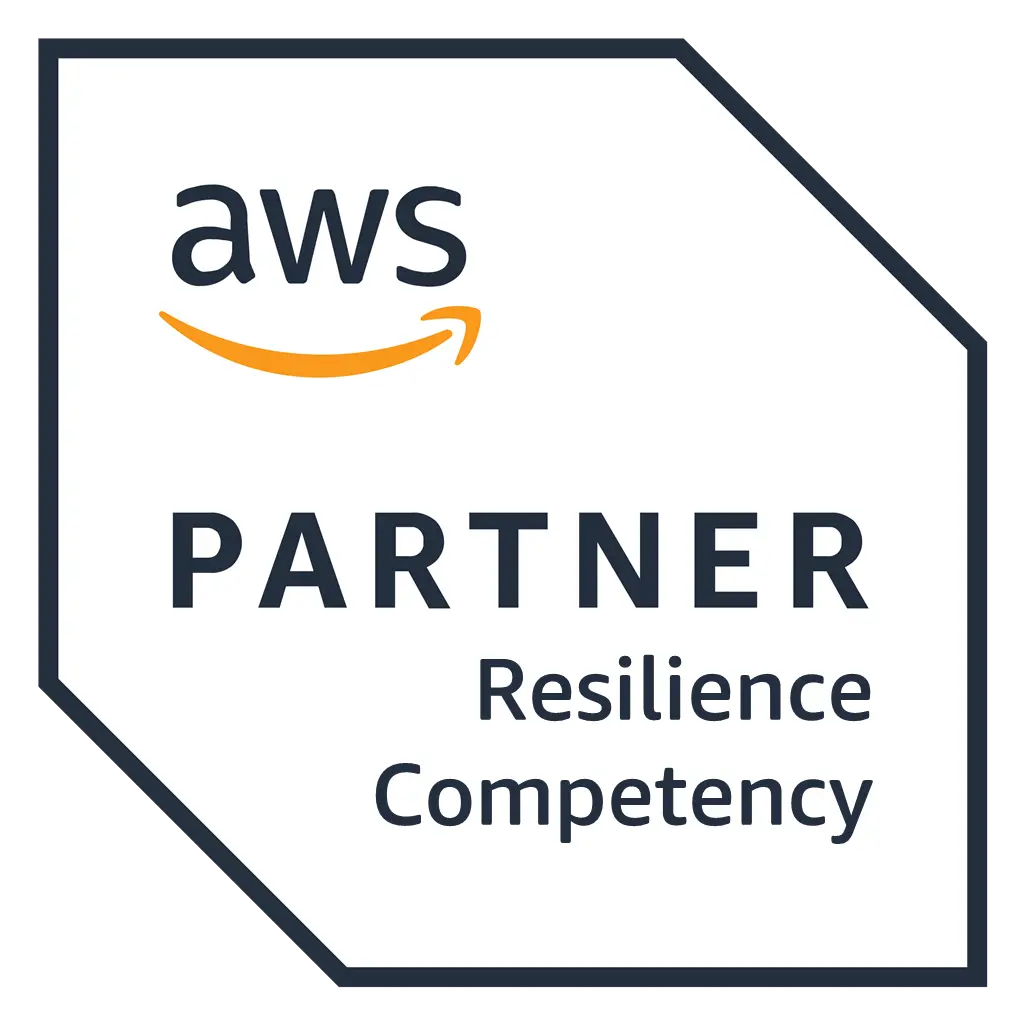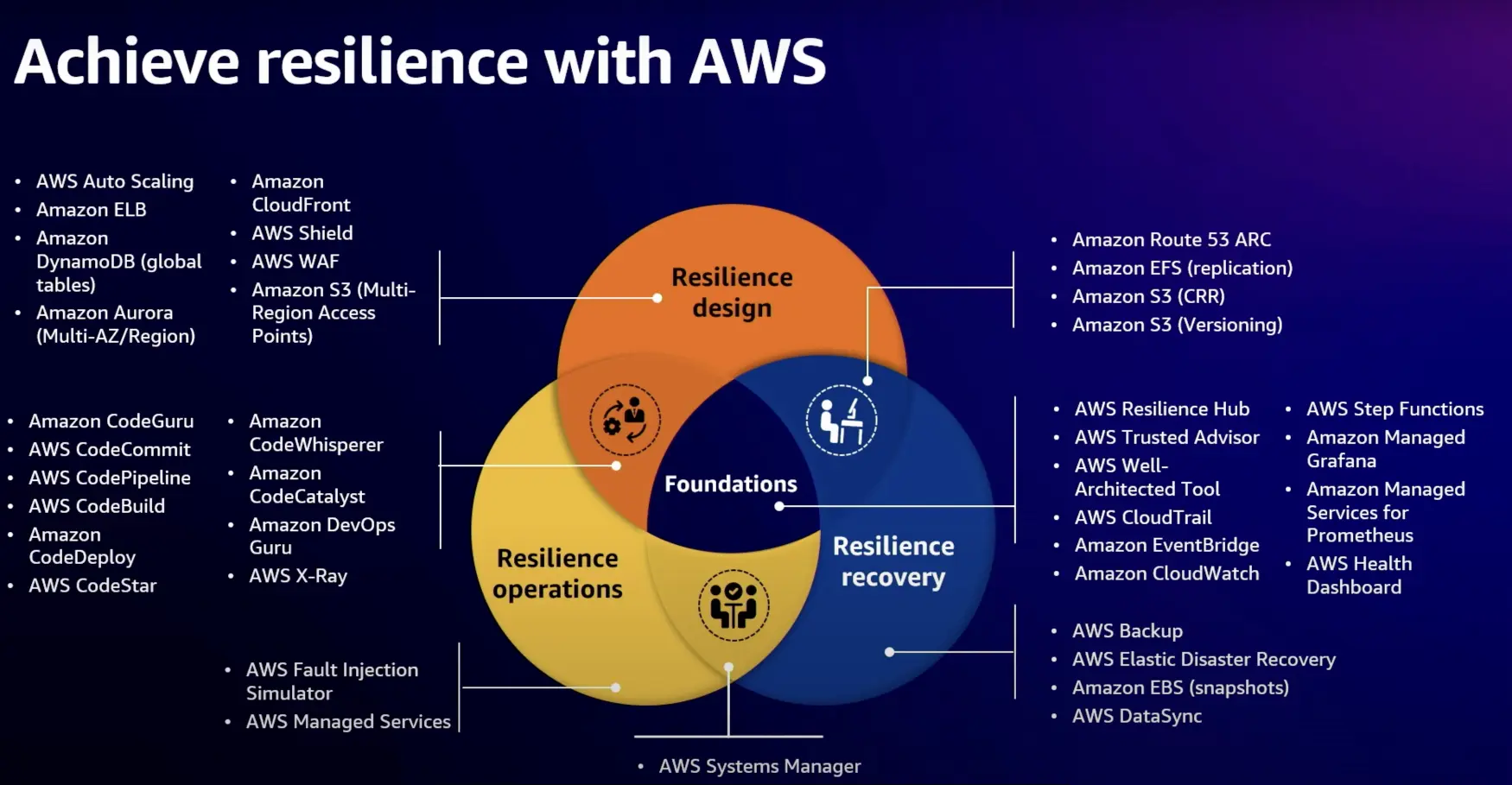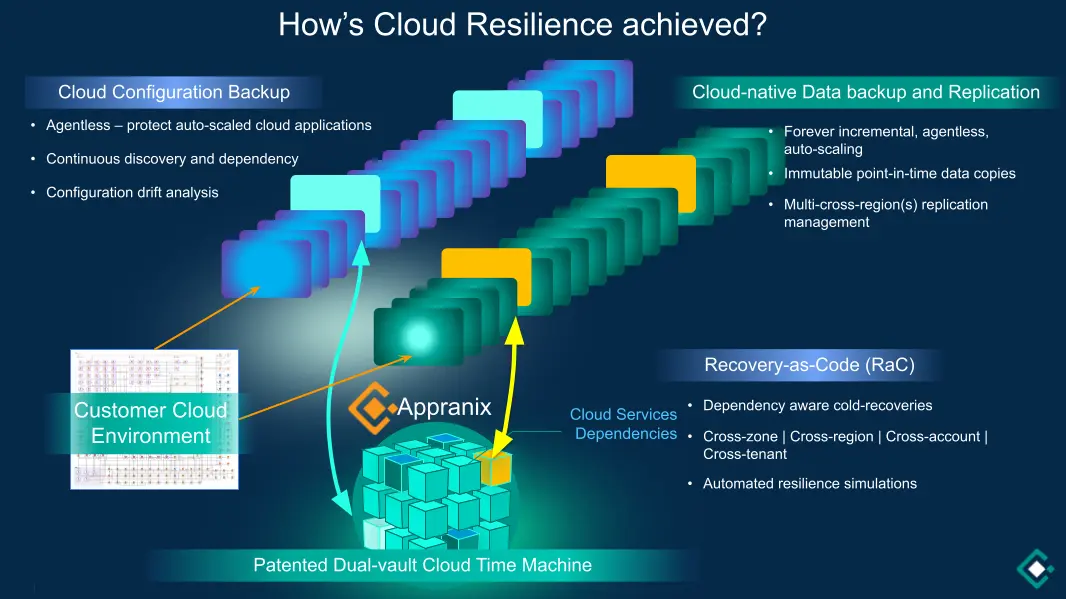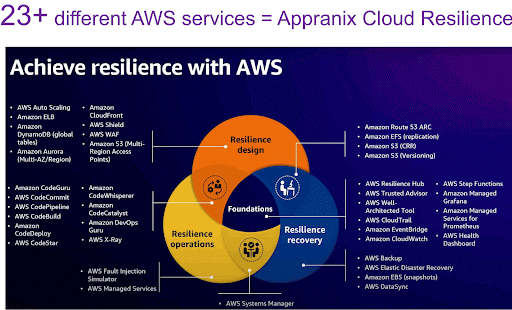In the ever-evolving digital landscape, cloud resilience has emerged as a paramount concern for businesses worldwide. In the recent announcement at 2023 re: invent, AWS has formally introduced its new Cloud Resilience Competency Program marking a significant milestone. Why significant? Cloud is not just about agility or cost savings. Proper use of cloud infrastructure and services could yield much better resilience for all kinds of enterprise applications compared to what was possible before.
What is Cloud Resilience?
Cloud Resilience refers to the ability of an application to resist or recover from disruptions such as outages and ransomware attacks, including those related to infrastructure, dependent services, misconfigurations, and transient network issues.
What is the AWS Cloud Resilience Competency?
Every AWS Competency is designed to identify, validate, and promote partners that demonstrate a particular competency. These partners typically provide consulting and implementation practices for the specialization. The AWS Cloud Resiliency Competency, announced at 2023 re: invent, is designed to identify and validate consulting partners that have proven in this advanced specialization.
According to Amazon Web Services, “AWS Resilience Competency Partners specialize in improving customer’s critical workloads availability and resilience in the cloud. As each customer and their critical workloads are unique and have distinct availability requirements, AWS Resilience Competency Partners can provide guidance and solutions suitable to achieve the utmost system uptime requirements.”

What does it take to achieve AWS Cloud Resilience competency?
There are four categories of the AWS Cloud Resilience Competency: Core Resilience, Resilience Design, Resilience Operations, and Resilience Recovery.

To achieve “Core Resilience”, AWS partners should first qualify for the other three categories - Design, Operations, and Recovery. Now, in order to qualify for these categories, partner teams should be well versed with Forty-One (41) different products and services as shown in the picture above.
Customer Outcome: Cloud Resilience Certification vs Delivery
Getting certified in the AWS Competency Program enables partners to open conversations with customers needing Cloud Resilience implementations. However, delivering implementations and operating customer environments as management service providers takes a tremendous amount of effort and time, and is expensive to support over time. Customers simply expect outcomes, as most of the conversations with enterprise customers are all centered around outcomes as opposed to what kinds of tools, processes, and deliverables are used for achieving those outcomes. Customer outcomes are centered around SLAs. For example, if there is a cloud service outage or region outages or even a ransomware attack, how does an implementation partner recover quickly from the outages?
Implementing forty-one (from the picture above) different products and practices vs actual Resilient Recovery is vastly different, particularly, at the time of dire need. In fact, most of the services are region bound. If the region goes down, recovering and running applications quickly becomes an inhumane toiling effort. Never mention customer satisfaction issues and costly business revenue problems, and to top all of it, customer reputation.
In addition, partners need to make sure that they can recover applications after a ransomware attack. In order to achieve an ability to rebuild for resilient recovery, partners need to build systems using these various AWS products and services so that after an attack, they can use these external systems to be able to rebuild applications without relying on the service consoles that may or may not be accessible after an attack.
Why Appranix Cloud Resilience?
Appranix, a pioneer in the realm of cloud resilience, recognized the critical importance of this domain nearly five years ago. Its patented cloud resilience platform has been instrumental in aiding businesses of all sizes to establish and maintain resiliency for distributed cloud applications. Cloud partners worldwide have been taking advantage of our platform to automate all the aspects of cloud resilience, particularly, the Resilience Operations and Resilience Recovery categories. This is achieved through the comprehensive discovery of cloud environment resources and dependencies, automating backup and replication of application data spread across multiple services using policies, and automating the recoveries using a rebuild model with Recovery-as-Code(Rac). All of these capabilities are achieved through our patented Dual-vault Cloud Time Machine architecture that can recover any resource at any point-in-time in any region or rebuild the entire application and cloud resources hyperfast after an outage or a ransomware attack.

How can an AWS partner take advantage of Appranix to deliver AWS Cloud Resilience to customers?
Appranix stands out as the only cloud resilience technology platform that automates and simplifies most of the cloud resilience framework’s components. Appranix has built a system by taking advantage of all the cloud-native capabilities available from AWS, Azure, GCP, and others, and abstracted the key components of individual services to be able to offer a Cloud Resilience SaaS platform with 99.95% SLA.
In summary, the collaboration between AWS and Appranix in the Cloud Resilience competency program represents a forward-thinking approach to cloud resilience. It provides businesses with the tools and expertise necessary to navigate the complexities of cloud resilience, ensuring continuity and security in the digital age.
The addition of the Cloud Resilience competency program to the AWS partner network is a welcome development. It underscores the criticality of cloud resilience, a concept extensively discussed by Gartner in their detailed sixty-two-page paper, offering insightful recommendations on this subject.
Visit Appranix on the AWS Marketplace

AWS Cloud Resilience Competency partners can resell our platform on the AWS marketplace or you can sign up here on our website to be a partner for multicloud opportunities.

